Uncategorized
-
 Animals
AnimalsNeonicotinoids are partial contraceptives for male honeybees
Male honeybees produce less living sperm if raised on pollen tainted with neonicotinoids, tests show.
By Susan Milius -
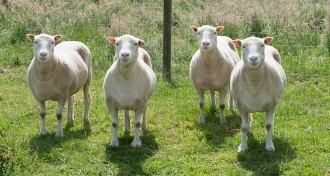 Genetics
GeneticsDolly the Sheep’s cloned sisters aging gracefully
Cloning doesn’t cause premature aging in sheep.
-
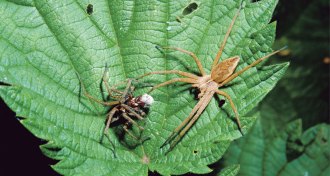 Animals
AnimalsTo prevent cannibalism, bring chocolate
If a date goes bad for a nursery web spider, a romantic gift can serve as a shield.
By Susan Milius -
 Math
MathWebsite tests predictive powers of the hive mind
Metaculus.com asks people to make predictions about the likelihood of future events.
-
 Tech
TechSPIDER shrinks telescopes with far-out design
Researchers hope new approach to interferometry and photonics will replace standard telescopes and long-range cameras where room is scarce.
-
 Earth
EarthAncient air bubbles could revise history of Earth’s oxygen
Pockets of ancient air trapped in rock salt for around 815 million years suggest that oxygen was abundant well before the first animals appear in the fossil record.
-
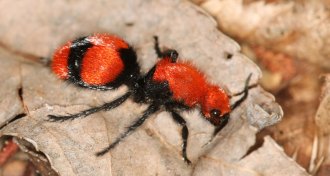 Animals
AnimalsNew books deliver double dose of venomous animal facts
In Venomous and The Sting of the Wild, researchers delve into the world of venomous creatures and the scientists who study them.
By Sid Perkins -
 Science & Society
Science & SocietySee the Starship Enterprise, design virtual robots, and more
New museum exhibits highlight air and space travel, DARPA technologies and pterosaurs.
-
 Cosmology
CosmologyDebate accelerates on universe’s expansion speed
A puzzling mismatch is plaguing two methods for measuring how fast the universe is expanding.
-
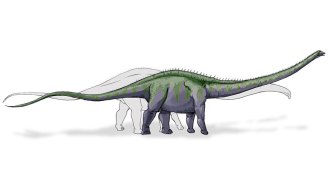 Earth
EarthHow dinosaurs hopped across an ocean
Land bridges may have once allowed dinosaurs and other animals to travel between North America and Europe around 150 million years ago, a researcher proposes.
-
 Health & Medicine
Health & MedicineU.S. lags in road safety
The U.S. tops the list of 19 high-income countries for deaths from motor vehicle crashes.
By Alex Maddon -
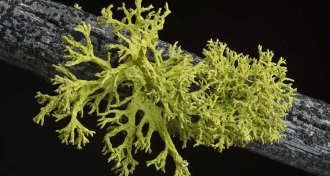 Life
LifeYeasts hide in many lichen partnerships
Yeasts newly discovered in common lichens challenge more than a century of thinking about what defines the lichen symbiosis.
By Susan Milius